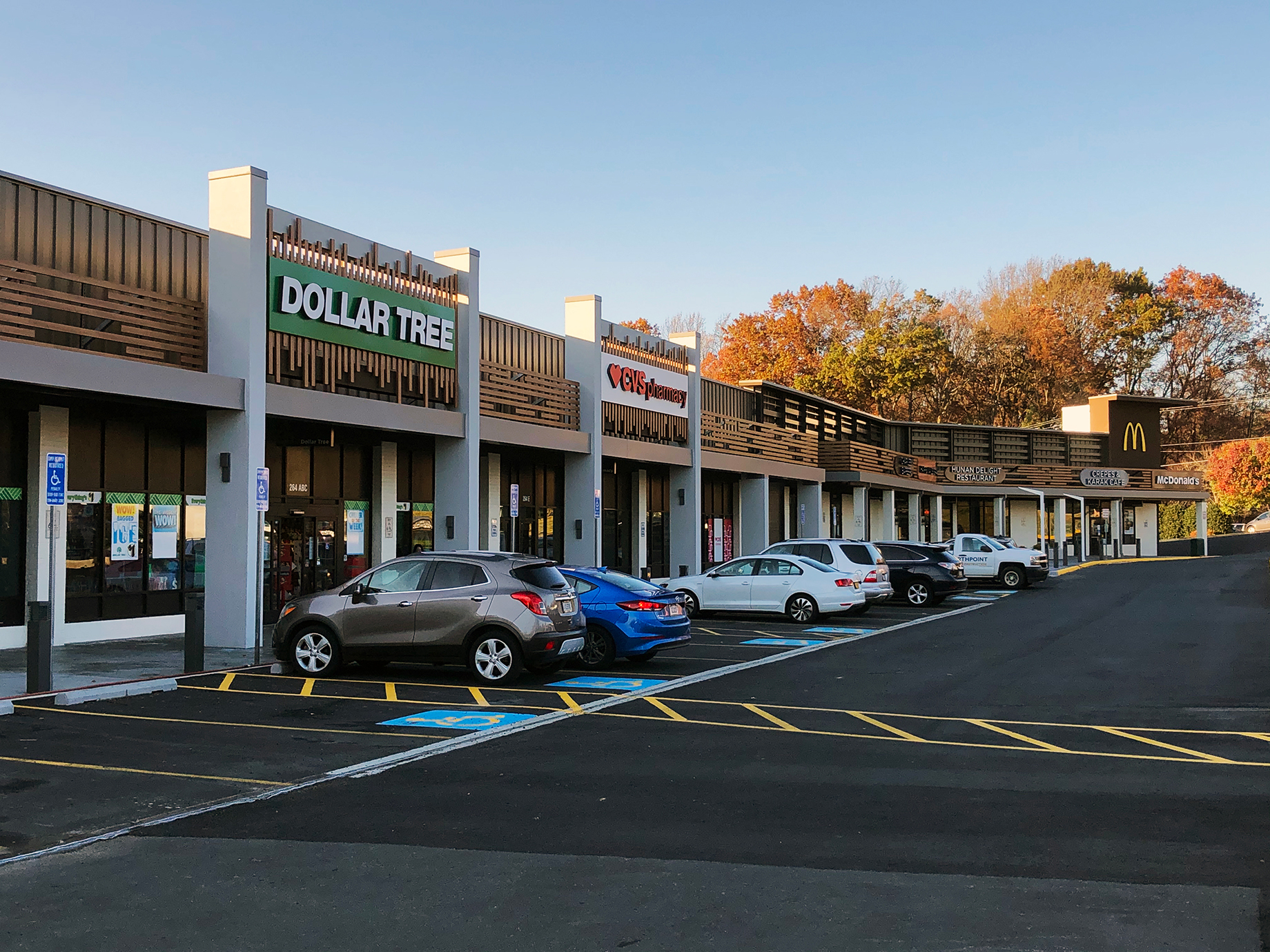Simon is working with third-party platform Narvar to make dropoff returns more manageable for customers and tenants. At six Simon properties’ concierge desks, consumers can drop off returns from about two dozen brands, even items purchased at other properties. When initiating returns online, customers will see nearby Simon malls, if they’re participating, as options for dropoff. The service uses digitally distributed QR codes rather than printed labels, making the process less cumbersome.
The service will launch during the holidays and continue indefinitely, the company said. Simon has tested similar return services, including Happy Returns, over the years. But the service has taken on greater importance amid the COVID-19-related surge in online shopping and expected returns for the upcoming holiday season.
Narvar’s service will increase loyalty among shoppers and bring in online shoppers who prefer not to mail in returns, said Andy Hutcherson, senior vice president of innovation and customer experience for Simon. “Our properties continue to be a town square destination for the communities they serve. Offering a variety of services at our properties helps consumers consolidate errands and save time, driving incremental visitation to our properties.”
Perhaps these brands will pop up in better shape than the Rockefeller Center tree
Rockefeller Center’s RC Capsule offers independent retail brands the ability to lease turnkey, pre-wired spaces for six-month terms. The program allows brands to test concepts while minimizing the risks of longer-term leases. The spaces are simple, clean and Art Deco in style, a reference to the iconic property’s design, and they can be tailored to any brand, says EB Kelly, Tishman Speyer managing director overseeing Rockefeller Center. The first RC Capsule tenants are Steven Alan and Jill Lindsey.
TJX has eyes on the nesting craze
Homebound consumers have made HomeGoods the star performer in TJX Cos.’s stable of brands. The company plans to gobble up market share in the home furnishings sector with new stores and a new e-commerce operation for the HomeGoods brand, executives said. Same-store sales climbed 15 percent during the third quarter, compared with a 6 percent decline for sister brand T.J.Maxx. “We are in an excellent position to take advantage of real estate availability to open new stores and relocate existing stores,” said TJX president and CEO Ernie Herrman. “Further, we plan to continue remodeling stores to further upgrade the shopping experience.” TJX also will launch an e-commerce operation for HomeGoods next year to capture more sales.
TJX is on track to open 50 stores this year and plans another 100 for 2021. The retailer also will grow its Homesense brand, which sells furniture and home decor out of stores that are slightly larger than HomeGoods. “If the real estate deal is right and it's near a HomeGoods, we're going to take advantage of that with some additional Homesense stores, as well.” Herrman said. “Our cannibalization when we open up a Homesense right near a HomeGoods has been close to nonexistent. If anything, we’re seeing a slight lift with the HomeGoods because of differentiation.”
More quick takes from retailers
Target is using its store network to power a massive surge in online sales. The retailer said comparable digital sales rose 155 percent in the third quarter, thanks to the burgeoning popularity of same-day services like curbside and in-store pickup. More than 95 percent of those sales are being fulfilled through stores. Same-store sales, which include online and store sales, rose 20.7 percent in the third quarter.
The new Amazon Pharmacy will allow customers in the U.S. to order prescription medications for home delivery, including free delivery for Amazon Prime members. Amazon Pharmacy will accept most forms of insurance, and customers also can use flexible spending accounts or health savings accounts to buy prescriptions. The service could offer savings for people without insurance, as well. The launch could have implications for competitors like CVS, Rite Aid and Walgreens.
Guitar Center prearranged a restructuring plan with its lenders as a prelude to filing for Chapter 11 bankruptcy protection. The company’s lenders have agreed to cut $800 million in debt and provide the retailer with $180 million in operating capital.
Simon expects to revamp JCPenney marketing and merchandise after the landlord’s partnership with Brookfield Properties acquires the department store chain’s operations, intellectual property and certain real estate out of bankruptcy. “We believe in the Penney’s brand,” said Simon chairman, president and CEO David Simon. “The company did over $9 billion in sales pre-COVID. We can return the company to increasing sales and grow the EBITDA.” The partnership includes licensing firm Authentic Brands Group, which, in a joint venture with Simon, successfully repositioned Brooks Brothers. That retailer “had the strangest real estate footprint,” Simon said. “They had single stores that were paying $3 million a year in rent. The ability to reject those leases and create profitability there, get out of bad stores, reduce the overhead and then do all this special marketing and with ABG has been a winning formula.” Authentic Brands Group will remerchandise JCPenney stores with products from brands the company owns or has stakes in, which include Forever 21 and Juicy Couture. “We would expect to enhance the Penney vendor matrix with the brands that ABG controls, as well as ours,” Simon said.
The latest landlord news
Simon and Taubman have modified their original merger agreement. Simon is now set to acquire Taubman for $43 per share in cash, down from the pre-pandemic agreement of $52.50 per share. The merger is expected to close by early 2021.
Traffic at Macerich properties is about 80 percent of what it was a year ago, according to CEO Tom O’Hern. “Some of that has to do with capacity limits, particularly for restaurants and also for having no seating in the food court,” he said. “Sales, on the other hand, are running on average 90 percent of a year ago, which means there is a higher capture rate.” For example, the Bath & Body Works store at New Jersey’s Freehold Raceway Mall has beat its 2019 sales three months in a row, even while operating at 50 percent capacity. “Make no mistake, traffic is important,” said Macerich senior executive vice president of leasing Doug Healey. “There’s no denying that. However, I do think it’s time we stop thinking so one-dimensionally and focus on other metrics in addition to simply traffic.”
In October, Brookfield Properties launched the Spot Holder queuing platform to help tenants manage the COVID-19 shopping environment. Shoppers check in via the property’s website, via phone call or via text, and the system provides arrival times via text. Once shoppers arrive at the store, employees can check them off the waitlists. Spot Holder helps property and store managers enforce social distancing requirements by tracking occupancy.
The latest retail development updates
First Washington Realty completed a multimillion-dollar redevelopment of the 75,472-square-foot Cedar Park Shopping Center, in Vienna, Virginia. The company refreshed the facade; put in new Americans with Disabilities Act-compliant, pull-in parking; and implemented a new signage plan. The CVS-anchored property added tenants during the renovation, including a coffee shop, a Mexican restaurant and a dance studio.

JL Architects’ new look for Cedar Park Shopping Center blends metal and wood accents
M & J Wilkow completed a two-year redevelopment of the 1.7 million-square-foot Southlands shopping center in Aurora, Colorado. New tenants include Five Below, Sephora and Anthony Vince Nail Spa. The company also renovated the center’s town square with amenities like a pop-jet fountain, a larger fire pit, an upgraded ice rink and new children’s play and guest services areas.

Southlands grand reopening celebrations, also pictured at top
Contour Cos. plans to redevelop the vacant Northland Center in Southfield, Michigan, into a mixed-use property with retail, office and residential after purchasing it from the city for $11 million. Contour will demolish several buildings and add 1,339 apartments across 14 new five-story buildings with commercial tenants at street level. The property’s massive J.L. Hudson Co. store, once the largest branch department store in the world, will become the Hudson City Market, a food-and-specialty home furnishings marketplace.
Recent property transactions
RCG Ventures sold the 134,707-square-foot Naples Towne Center in Naples, Florida, to a New York-based investor. Tenants include Bealls, Dollar Tree, Rent-A-Center and Sprint. Plaza Advisors represented the seller.
H.L. Libby Corp. sold the 55,984-square-foot Orchard Hill Square in Staunton, Virginia, to Rafinia Property Group for $2.2 million. Tenants include Food Lion, a University of Virginia dialysis center, T.J.Maxx, Ashley HomeStore and Tractor Supply Co. Colliers International represented the seller.
Pinnacle Capital bought the 31,245-square-foot Northwood Village in Houston from a private investor for $2.7 million. Marcus & Millichap represented the seller. Tenants are a mix of local services like a laundromat and a pet supply store.
Beacon and Carolina Capital Real Estate Partners acquired Jefferson Square in La Quinta, California, from its developer, Regency Centers. CVS anchors the property. Beacon plans to fill a 14,000-square-foot vacant box with a grocery, home improvement or medical tenant.
By Brannon Boswell
Executive Editor, Commerce + Communities Today